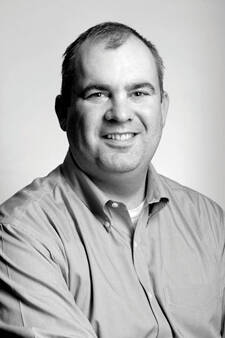From the moment Daniel Berrigan took the stage at Cornell University on April 17, 1970, he and everyone else there knew he would be arrested. Among the thousands of students present were countless F.B.I. agents. Some had traded their blue suits for hippie disguises, but one could still pick out those Fordham and Boston College boys a mile away. Daniel and his brother Phil had been ordered to report to prison a week before for destroying draft records two years earlier in Catonsville, Md.; and despite the crowd’s loud support, it looked like Cornell would be Dan’s last day of freedom for some time.
But wait. As the house lights went down, the slight Jesuit was led to a huge burlap-and-papier-mâché puppet of an apostle, one of a dozen used that night for a creative rendition of the Last Supper. Guided by unseen hands while hiding inside, he made a clean getaway into the Ithaca night.
J. Edgar Hoover was enraged by Berrigan’s whimsical escape and put him on the F.B.I.’s Ten Most Wanted list. The next few months proved to be Hoover’s worst nightmare, as Berrigan, calling himself “a fugitive from injustice,” cropped up time and again at churches, convents and campuses, always evading capture. Even the conservative scion William F. Buckley Jr. ridiculed the F.B.I., noting “it was much likelier that you would see [Berrigan] on Johnny Carson’s show, thumbing his nose at American jurisprudence, than behind the bars he belonged behind.” Many others found themselves cheering on this unlikely “Catholic Robin Hood,” and Berrigan’s message of nonviolent resistance to the American war machine was heard by ears that had never before listened.
Four months later, at William Stringfellow’s house on Block Island, a dozen F.B.I. agents posing as birdwatchers finally caught up with Daniel Berrigan. The three-year prison stay that followed left him undeterred. After that came decades of peace activism. A photograph of Dan after his arrest—smiling gleefully as he flashes the peace sign with cuffed hands—has become an icon for the peace movement and for nonviolent protesters everywhere.
But the merry chase could never happen today.
Berrigan would be caught within days, perhaps minutes, boxed in by a surveillance state that he himself has warned against multiple times over the past four decades. He would be photographed a dozen times daily from lampposts and taxicab cameras; every phone and computer he used would be tracked; he would be observed from the sky by drones. And every fellow traveler who offered him assistance—from the nuns who hid him in convents to the Catholic families who hid him under their beds—would face charges that they had assisted a fugitive.
Don’t think so? Just weeks ago, the infamous “affluenza teen” Ethan Couch was caught almost immediately in his flight from the law because he used a cellphone in Mexico to call for a pizza. Note: this was not the C.I.A. hunting Osama Bin Laden with every tool at the nation’s disposal, or the F.B.I. putting on a nationwide manhunt to apprehend Whitey Bulger. This was U.S. marshals and Mexican police tracking down a teenager who had skipped a meeting with his probation officer.
Obviously no one is going to defend Ethan Couch. But shouldn’t we ask who has access to our cellphone activity, and when and how? Shouldn’t we ask what it means for a free society when such surveillance is implemented for every violation of the law, and extended beyond our borders? What happens when it isn’t Ethan Couch but a more defensible violation of the law? Might it sometimes be in our interest as a nation to hear voices that are temporarily illegal?
If the U.S. government had enjoyed this level of surveillance in the 1970s, we would never have heard Berrigan’s “Sermon From the Underground.” Daniel Ellsberg would have been jailed long before the Pentagon Papers ever made it to the Xerox machine. “Deep Throat” would have found parking garages poor hiding places from Nixon’s security apparatus. And as a result, far more malicious lawbreakers than these would have been left to their own devices.
There is little doubt that technological advances in the detection, prevention and prosecution of crime since 1970 have made us all safer in many ways. We should hold grave doubts about whether or not they have been worth it.








